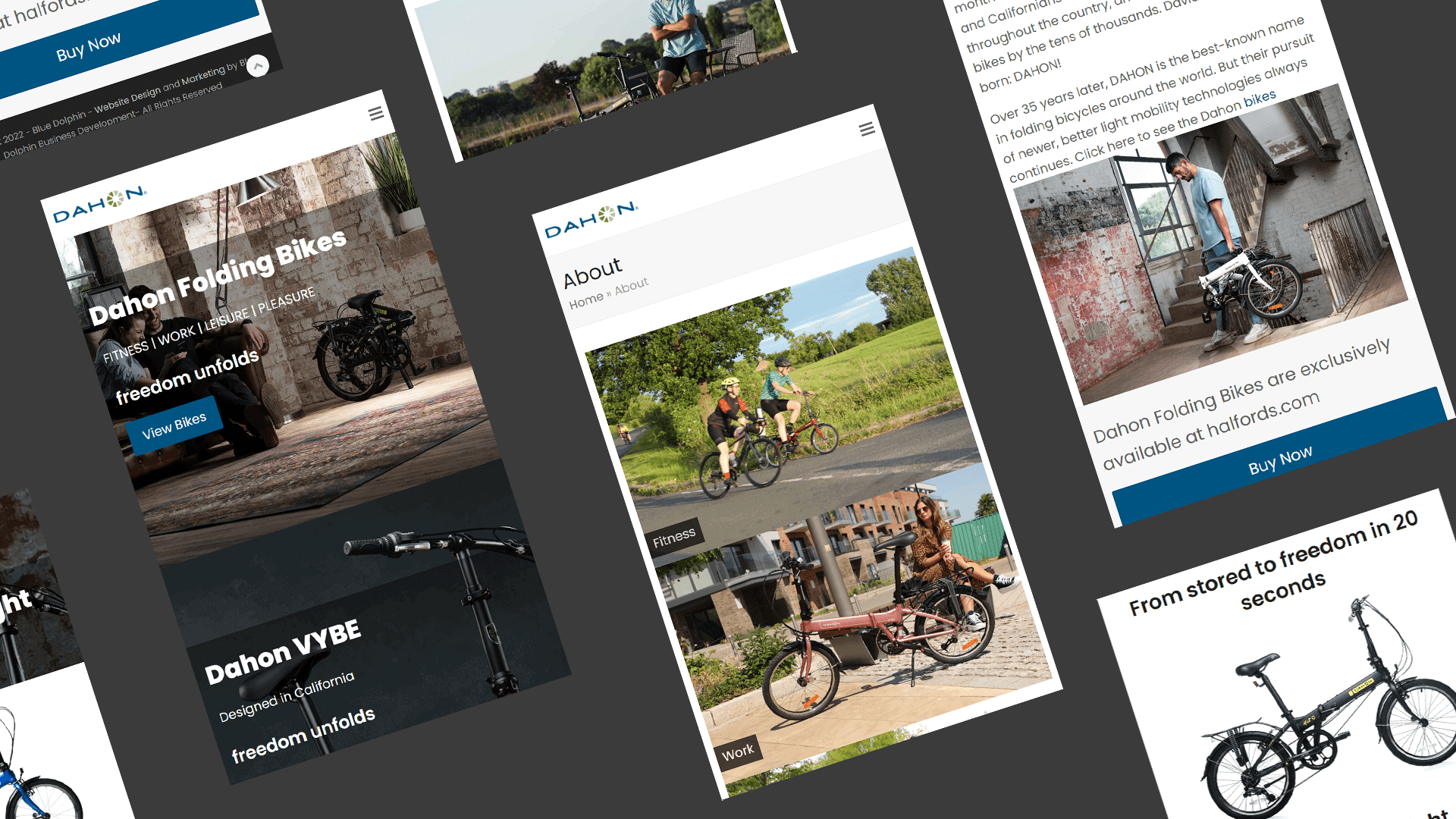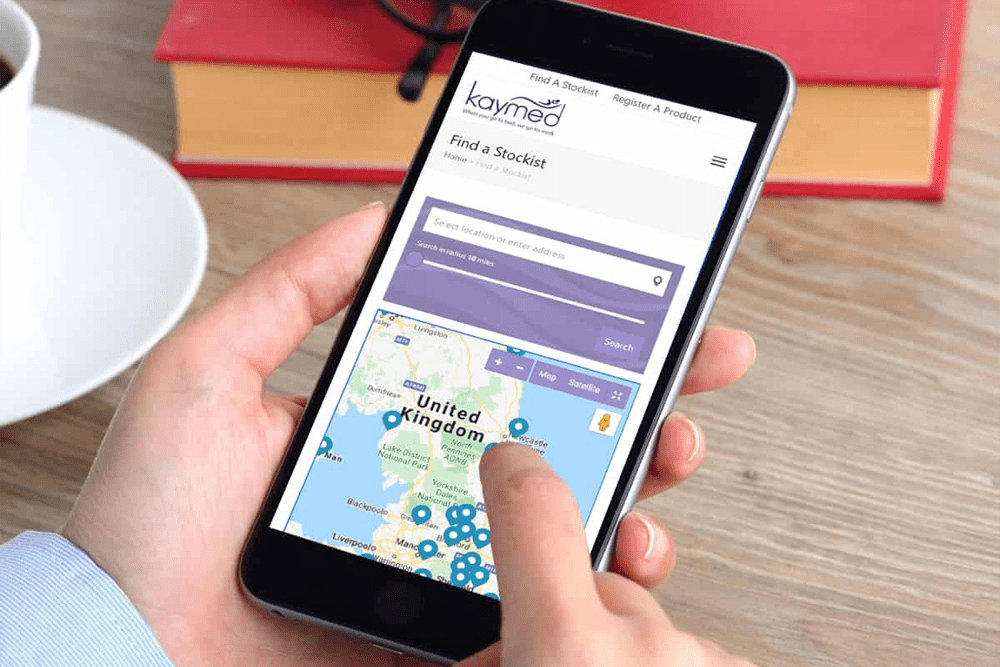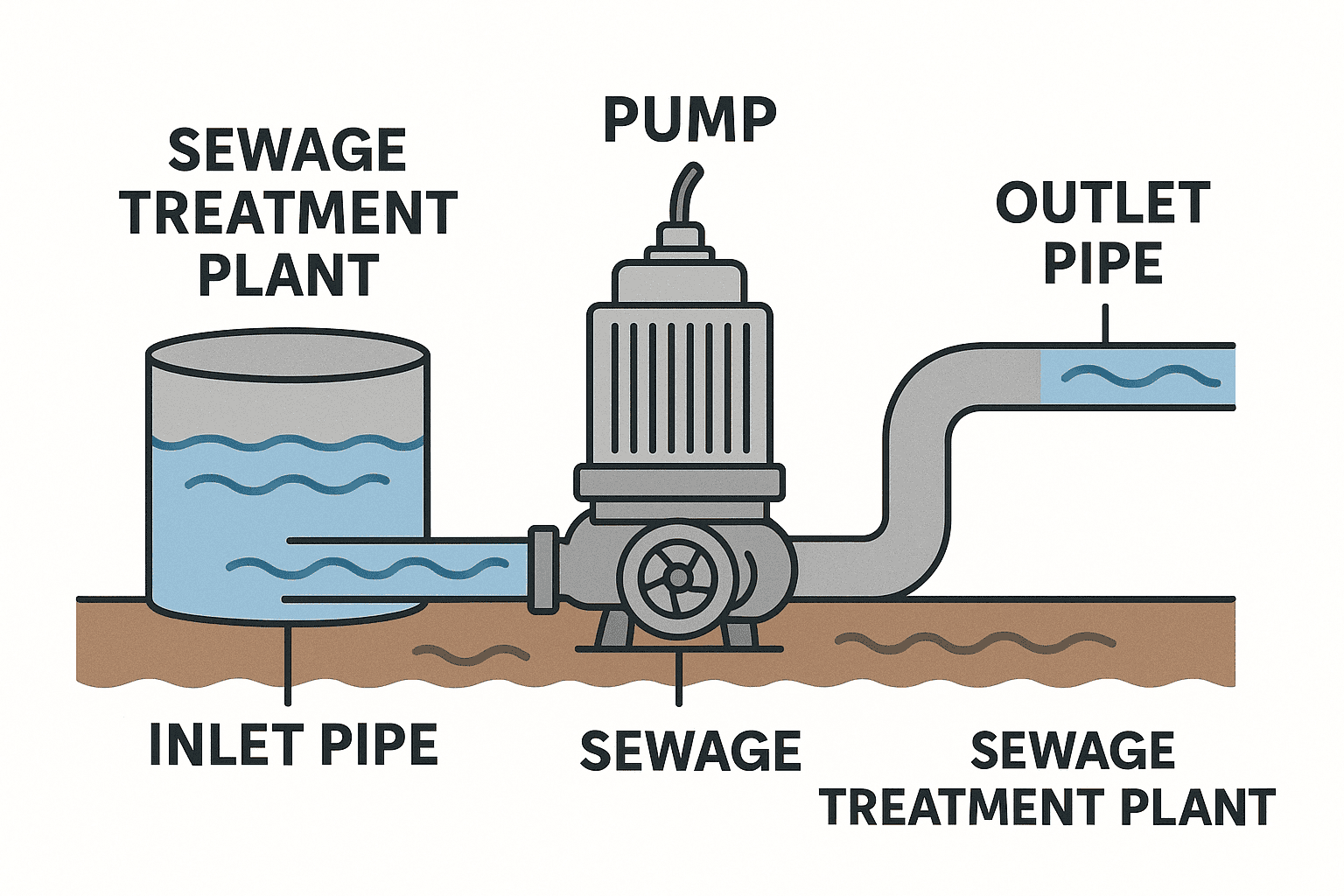Continual web development is a critical aspect of managing and maintaining an effective online presence. In today’s digital age, having a website that is up-to-date, user-friendly, and optimised for search engines is essential for businesses of all sizes and industries. In this article we look at web development questions you should consider before your next project.
One of the key reasons why it is important to continually develop your website is to keep up with the ever-evolving technology landscape. As technology advances, user behaviour and expectations also change, and it is important to make sure that your website remains compatible with the latest technologies and provides an optimal user experience. A website that is not regularly updated and developed may become outdated, slow, and difficult to navigate, which can negatively impact user experience and drive potential customers away.
Another reason why it is important to continually develop your website is to improve the user experience for your visitors. Regular website development can help you identify areas for improvement in terms of user experience, such as making navigation more intuitive, improving page design, and ensuring that your website loads quickly and efficiently. A positive user experience can have a significant impact on your website’s success, as it can increase engagement, encourage repeat visits, and ultimately drive conversions and sales.
In addition to improving user experience, regular website development can also boost your search engine rankings. Search engines like Google and Bing are constantly updating their algorithms to better understand the content on websites and rank them in their results pages. By continually developing and optimising your website, you can ensure that your website is in line with the latest best practices and remains highly visible in search engine results.
Staying relevant is another important factor to consider when it comes to website development. Your website represents your brand online, and it’s important to make sure that it stays up-to-date and reflects your brand accurately. Regular website development can help you make updates to your content and design, ensuring that your website continues to engage your audience and remain relevant.
A well-designed and optimised website can have a significant impact on the success of your business. By regularly developing your website, you can make updates and improvements that will help you reach your goals and achieve better results. For example, you can increase lead generation, improve conversion rates, and boost sales.
The importance of continually developing your website cannot be overstated. Whether you are looking to improve the user experience, boost your search engine rankings, or drive results for your business, regular website development is essential. By making the necessary updates and improvements to your website on an ongoing basis, you can ensure that it remains relevant, effective, and successful.
Want to pick up the phone and speak to us about your Website project?
Call us on: 01733 361729 mail: solutions@bdolphin.co.uk
Redeveloping your website is an exciting project that can help your business grow and reach new heights. Whether you’re starting from scratch or just making some changes to your current website, it’s important to ask the right questions to ensure that the end result meets your needs and exceeds your expectations.
To help you get started, here are some important questions you should consider when redeveloping your website:
- What is the main goal of your website?
- Who is your target audience?
- What are the key features and functionalities you need on your website?
- How do you want your website to look and feel?
- How will you measure the success of your website?
- What is your budget for the website redevelopment project?
- How will you ensure the website is optimized for search engines?
- How will you handle website maintenance and updates?
- What is your timeline for the website redevelopment project?
- How will you integrate your website with your other marketing and sales channels?
Website Redesign Questions & Considerations
A comprehensive list of web development questions are detailed below
By asking these questions you’ll better identify what’s required and expected from a website redesign project.
#1: Determining Your Websites SMART Goals
- What is the primary purpose of your website?
- Whilst the simplest possibly the most important question to answer
- Why are you looking to redesign your website?
- Is it working for you as a business development tool
- What is your business’s unique value proposition?
- A strong UVP helps a business differentiate itself in the market, communicate its value to potential customers, and attract and retain loyal customers. It is a critical component of a company’s overall marketing strategy.
- Do you have SMART (Specific, Measurable, Attainable, Realistic, Timely) goals for your website that will help you know that the site is a profitable investment?
- What’s your timeline for achieving these goals?
- Does your website need to start performing in hours, days or months
- Who are your main three competitors?
- I would always suggest looking at the 3 direct competitors you most often find yourself competing against.
- Looking at their websites, which elements do you like and dislike?
- Will this website redesign be a complete overhaul with a new structure and features or simply a refreshed look for your site?
- What kinds of reports and data based on website usage would you like to be able to review on a monthly, quarterly, or yearly basis?
- How are you planning on marketing the site when it launches?
- What’s the budget for this project?
- What’s the yearly budget for site improvements?
#2: Understanding the Site Requirements
- Please describe the accessibility requirements you want to meet beyond what is outlined by WAI-ARIA?
- Will the pages need to announce that they use cookies per some countries’ requirements?
- Where is your website to be hosted?
- Website hosting is a service that allows individuals and organizations to publish a website or web page on the Internet. It involves storing the files that make up a website on servers that are connected to the Internet and making those files accessible to users who want to view the website.
- When you sign up for a website hosting service, you rent space on a server to store your website files. The hosting company is responsible for maintaining the server, ensuring it’s secure, and ensuring it’s always online so that people can access your website 24/7.
- What level of hosting do you have now, and what level do you anticipate needing?
- There are different types of website hosting services available, including shared hosting, dedicated hosting, and cloud hosting. Each type of hosting offers different levels of resources, performance, and control, so it’s important to choose a hosting provider and plan that meet your specific needs.
- Having a reliable and fast website hosting service is critical for the success of a website, as it directly impacts the website’s load times, uptime, and overall performance.
- Can you access and provide usernames and passwords?
- Do you ever have large spikes in traffic that we will need to plan for from a hosting standpoint?
- Do you have or need an SSL certificate?
- SSL (Secure Sockets Layer) is a security protocol that provides encrypted communication between a website and a user’s browser. It’s now widely referred to as TLS (Transport Layer Security), which is an updated version of SSL.
- Do you know what level of SSL certificate you need?
- The level of SSL certificate you choose depends on the specific security needs of your website and the information you collect and store. For most websites, a basic DV certificate is sufficient. However, if you have a higher-security website that collects sensitive information from users, you may want to consider an OV or EV certificate.
#3: Functionality of the Website
A list of some website functionality in no specific order or priority.
- Does your website require a membership-only section?
- Do you plan on posting audio files on your website?
- Do you have a video hosting service or will you be uploading videos to Vimeo or YouTube and embedding them?
- Will you need people to log in on the site either with a username and password or by using social logins?
- Do users need the option to post product reviews?
- Do you want users to be able to comment on blog posts and other types of content?
- Do you want to integrate chat features?
- Does the site need an internal search engine?
- Do you need to support several languages?
- Do you want people to be able to share content from your website?
- Will visitors have the option of entering credit card information and other personal details on any section of the website?
- Is this an ecommerce site or are you planning on selling anything? Will we need to find an ecommerce platform to handle carts, customer accounts, discount codes, and payment processing?
- Will you need to run multiple sites on multiple domains from one CMS?
- Will you be running ads on your site?
- Do you want to budget for user testing during the design and development phase?
- Do you need to publish an event calendar on your website?
- Do you have a site architecture completed?
- What key information should be available on all your site’s pages?
- Do you use call tracking to track online campaigns?
- Do you use Google Analytics or a different analytics provider to track activity?
- What tools and apps do you use to run your business?
- How important is integrating these third-party services with your site?
#4: Setting Website Benchmarks
To complete these elements you will need to have access to Google Analytics on your website
- Which pages see the most traffic?
- Which site pages rank highest in the search engine results pages (SERPs)?
- What percentage of site visits are from organic sources?
- What percentage of site traffic are referrals from other sites?
- What percentage of traffic is from social media sites?
- What percentage of traffic is from email marketing?
- What percentage of traffic is from direct or people who type your URL into the search bar?
- What percentage of traffic is from mobile devices?
- What percentage of traffic is from tablet devices?
- What sources — social, referral, organic, etc. — generate traffic from mobile and tablet users?
- What metric(s) do you use to measure the success of your blog specifically? Visits, conversions, or leads?
- What metric(s) do you use to measure the success of your entire website? Visits, conversions, or leads?
- What metric(s) do you use to measure the success of your email marketing efforts? Visits, conversions, or leads?
- What are your top-performing landing pages?
- What are your top-performing blog posts?
- What are your top-performing keywords?
- How many average monthly site visits does your site receive?
- How many pageviews does your site get each month?
- How many leads do you generate each month?
- How long do people typically spend on your website?
- What is your website’s bounce rate?
- What is the average amount of sales your site generates each month?
- What is the page load time of your site?
- Is your site responsive and mobile-friendly?
- How many pages on your site are indexed?
- How many inbound links point to your current site?
#5: Setting up a Lead Generation Process
- Do you collect visitors’ information and store it in a CRM? If so, please describe the current process.
- A CRM system typically includes software that allows businesses to manage customer data, track customer interactions, automate marketing and sales processes, and measure the success of customer engagement initiatives. The goal of a CRM system is to help companies develop and maintain strong, long-lasting relationships with their customers by providing personalized experiences and improving communication and collaboration across departments.
- Do you use forms, and what fields do you currently use or want to include on forms?
- What information is a nice-to-have versus a must-have?
- Do you currently use progressive profiling on your forms?
- Do you want to capture lead information from videos on your site?
- Do you send email marketing communications?
- What types of emails do you send to subscribers, prospects, leads, and customers? Can we see some examples?
- Do you currently include relevant call-to-actions on content posts?
- What does your lead scoring criteria look like?
- Would you like to run predictive lead scoring every few months to automatically determine the properties and weight of each factor to create a lead score?
- Have you performed A/B tests of your landing pages and calls to action to increase your site’s clickthrough rates?
- Do you want to trigger automated emails by actions customers take on your website?
- Do you want to have the ability to create, edit, and publish landing pages and site pages?
- Will you run ads — native, display, search, etc. — to drive traffic to your site?
#6: Building Relationships
- Are on-site meetings required while working together?
- Do you prefer a tool or system for virtual meetings?
- Who is managing the site after the relaunch?
- Will you need training on how to properly maintain the site?
- Who is responsible for reviewing and providing feedback on the site?
- Who gives final approval for the site before launch?
- Will your legal and compliance teams review copy before the relaunch?
- Will your legal team need to create a privacy policy for your site?
- Would you prefer to give feedback on the site’s wireframes, designs, and staging site through email or a project management or creative collaboration system?
#7: Managing Website Content
- Do you have an existing content management system you prefer or would you like our suggestions on the proper CMS?
- Do you have a documented content strategy?
- What types of content will you publish on your site?
- Is there duplicate content on your site?
- Will you update and reuse content or images from your current website?
- Are you writing content for the site?
- Who is responsible for uploading and formatting the content for the site?
- Do you create Ebooks, whitepapers, and other resources that users must submit a form to gain access to?
- Do you have buyer personas? How many do you have and will we need to set up conversion funnels for each persona?
- Do you have photos and visuals to use for the site that can be used for commercial purposes or should we budget for stock or custom photography?
- Do you want to personalize content so that the content shown is targeted and relevant for different visitors?
- Will external content sources — say from an RSS feed — be featured on your site?
- How often will you be updating the content on your site?
- The frequency at which you add new content to your website depends on various factors, including the nature of your business, the goals you are trying to achieve, and the amount of resources you have available for content creation
Additional Web Development Questions
- What elements of the design need to be carefully documented for easier implementation?
- Layout: The overall structure and layout of the website, including the placement of key elements such as the header, footer, main content area, and sidebars.
- Typography: The font styles, sizes, and colours used throughout the website, including headings, body text, and other special text elements.
- Colour palette: The specific colours used for different elements of the website, including backgrounds, borders, and text.
- Imagery: The types of images and graphics used, including any specific requirements for resolution, size, and file format.
- Navigation: The structure of the navigation menu, including the hierarchy of pages and sub-pages, and the labelling of each menu item.
- Interactions and animations: Any special interactions or animations that are part of the design, such as hover effects, pop-ups, or scrolling animations.
- Responsiveness: Details on how the design will adapt to different screen sizes and devices, including the specific breakpoints and layout changes that will occur.
- Accessibility: Considerations for accessibility, including support for keyboard navigation, alternative text for images, and accessible colour contrasts.
- Development requirements: Any specific technical requirements or limitations that need to be taken into account during development, such as the use of certain technologies or the need for specific functionality.
- On what platform is the current website built and why?
- How do we schedule the website development activities?
- Is there an existing design system, component library, or repository that I need to be aware of?
- Are there any existing resources, like graphic assets, copy, videos, and templates, I need to be aware of?
- Does the built website closely resemble the original design?
- Does the content strategy make sense?
- Objectives and goals: Define the purpose and goals of the website, such as increasing sales, improving brand awareness, or providing information to customers.
- Target audience: Identify the target audience for the website, including demographic information and their needs and expectations.
- Content types: Determine the types of content that will be published on the website, such as blog posts, product descriptions, FAQs, and more.
- Voice and tone: Establish a consistent voice and tone for the website that aligns with the brand and appeals to the target audience.
- Keywords and search engine optimization (SEO): Identify the keywords and phrases that are relevant to the website’s content and target audience, and plan for optimal SEO to increase visibility in search engine results pages (SERPs).
- Content calendar: Create a content calendar to plan and organize the publication of new content and ensure a steady flow of fresh content.
- Content creation and production: Plan for the creation and production of content, including the roles and responsibilities of the content creators, editors, and publishers.
- Measurement and analysis: Establish metrics to measure the success of the website and its content, and plan for regular analysis to make informed decisions about future content strategies.
- Are we meeting Web Accessibility standards? (WCAG)
Web Development Questions – Summary
In conclusion, web development is a vast field that requires a broad range of skills and knowledge. In this article, we have explored some common questions that web developers encounter during their work. We have discussed various topics, including HTML, CSS, JavaScript, web frameworks, and version control systems.
It is essential for web developers to stay up-to-date with the latest trends and technologies to be competitive in the industry. Continuous learning and practice are necessary to hone one’s skills and deliver high-quality web applications that meet the client’s requirements.
Overall, web development is an exciting and challenging field that offers numerous opportunities for growth and learning. By mastering the essential concepts and staying current with industry developments, web developers can build successful careers and contribute to the advancement of the web.











